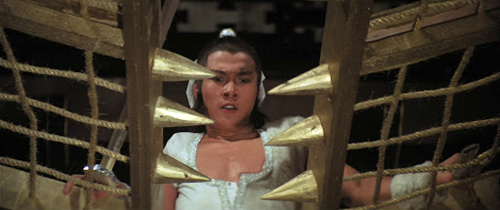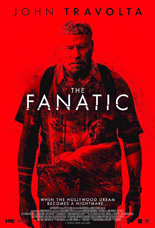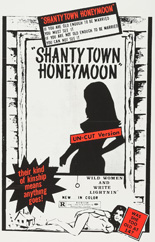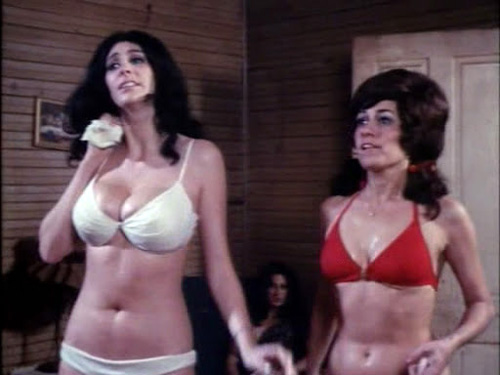
Pay no attention to House of Traps’ opening narration, which throws more names at viewers than its actors hurl metal darts and spears. The multigenerational mishmash of backstory gets spewed so quickly, not even Rain Man could keep up.
Ultimately, this is all that matters:
• House of Traps indeed features a house of traps.
• It’s a Shaw Brothers production.
At the heavily guarded House of Traps, a stolen jade horse is hidden alongside other purloined treasures of the imperial court. Everybody wants to get their hands on that horsey booty. To do so, they “only” need to ascend the levels of the foreboding abode, so named for such automated amenities as — ADT, take note! — floor spikes, razor stairs, swinging blades, sliding walls, pop-up jails and something called the “deadly copper net trap,” which might send a rush of blood to Jigsaw’s crotch.

Speaking of cocks, one gets slammed onto a bed of nails. Speaking of animals, the fighters all have cool names like Black Fox and River Rat. Sometimes it’s hard to tell whether a character stands on the side of good or evil; if a voice sounds in urgent need of a deliciously soothing Luden’s, that’s a telltale sign for “villain.”
With martial arts movies, I’m most drawn to those with unique concepts. From that standpoint, House of Traps is tough to beat. From Crippled Masters to Five Deadly Venoms, director Chang Cheh made this style his bread and butter. While generously demoing the lethal devices throughout, he saves the bulk for the third-act showdown. Needless to say, it’s a real ass-kicker!
As usual, characters dine at a restaurant where wine is kept in what may as well be an outdoor planter, and there’s also an old man with a beard so uncomfortably long and wispy, it could double as a crumb duster. Unique to this film, he’s terrified by comedy and tragedy theatrical masks, as well as acts of turtle magic. —Rod Lott













